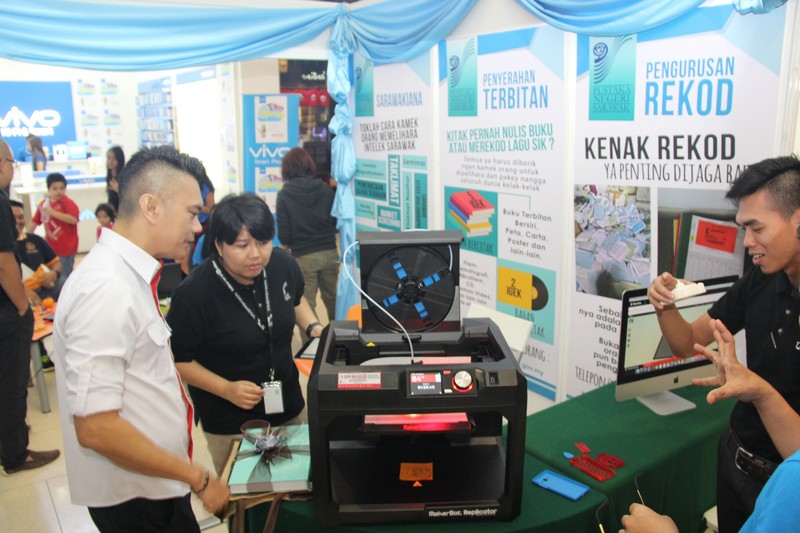Establishing a central body in Sarawak that is dedicated in managing and driving research and development (R&D) for products and services to be developed, sustained, improved, standardised, replicated and commercialised will help drive the culture of innovation in the State.
Such was the proposal by State Secretary YB Datuk Amar Jaul Samion, to which Chief Minister YAB Datuk Patinggi (Dr) Abang Haji Abdul Rahman Zohari bin Tun Datuk Abang Haji Openg strongly agreed and supported.
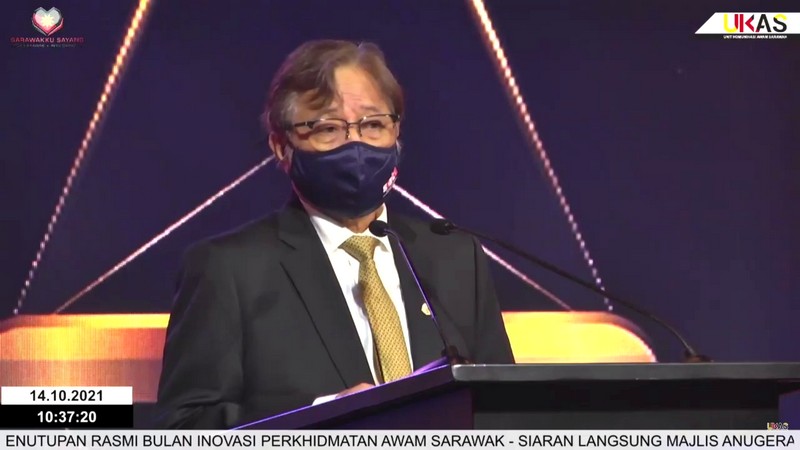
This will particularly benefit civil servants who want to produce innovative ideas that can add value to their service delivery and transform their respective agency and department’s existing work culture.
“Innovation in the civil service is important as it promotes national competitiveness.
“Therefore, it is a priority for us to continue to intensify efforts in furthering the culture of innovation, ensuring a faster, more efficient and effective government service delivery system.
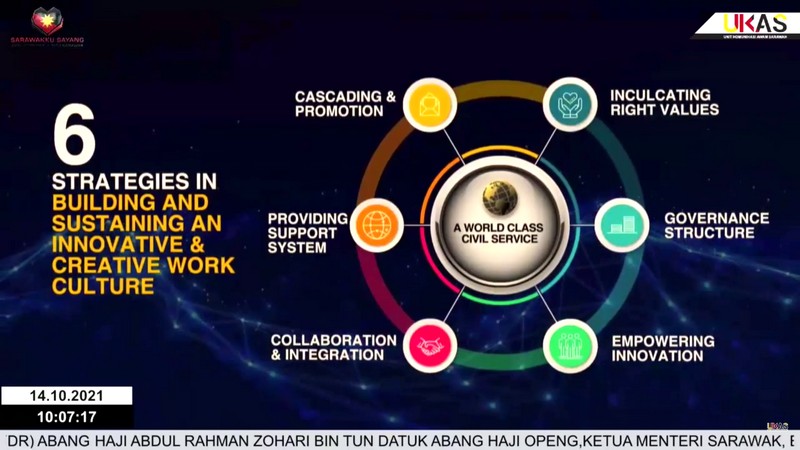
“Thus, innovative culture is the main agenda in (Sarawak’s) transformation programme in an effort to improve the quality of services to the people.
“Such efforts need to be supported at all levels, especially top management to ensure that the value of creativity and innovation becomes a work culture and not seasonal or according to competition alone,” he said in his remarks at the Sarawak Civil Service Innovation Convention Awards 2021 in Kuching on 14 October 2021.
Beyond the civil service, the Chief Minister explained that government support for R&D towards socio-economic progress is a key component of innovation policy.
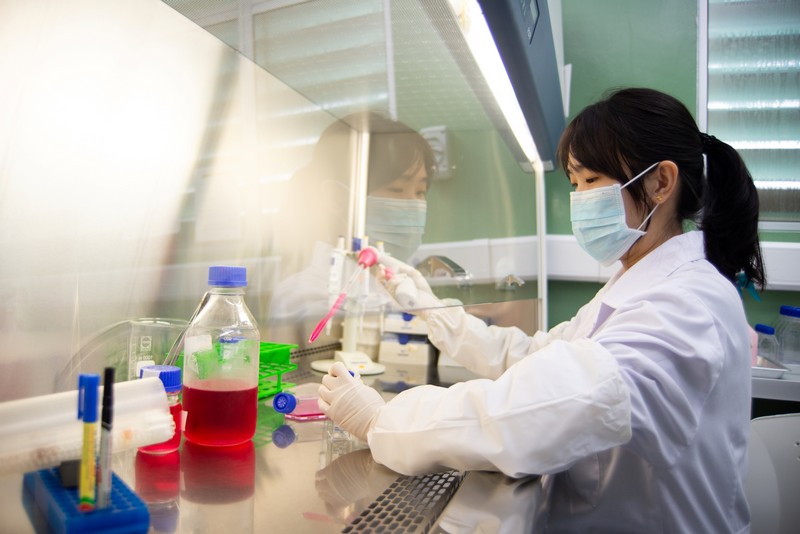
Long-term public R&D investment is crucial in reducing market failures that supplies “too little of certain types of R&D”, and further boosting effectiveness of R&D commercialisation alongside aspects involving market competition, intellectual property and financing, among others.
To illustrate, the Chief Minister noted efforts by governments around the world in their investment in R&D, including public funding, incentives for private sectors for undertaking R&D and support for pilot programmes.
This, in turn, enables the building of innovation resources for the private sector; an increase in socio-economic returns especially in knowledge-intensive industries; a reduction in technical, commercial and financial risks related with R&D investment; and an inducement for more private R&D investment.
“One of the strategies for Sarawak to create significant impact in the innovation-based economy is through establishing demand-based private-led innovation clusters.
“Innovation clusters are primarily focused areas with the concentration of knowledge and technology output, enabled by facilitative public policy, access to significant R&D funding and human capital.
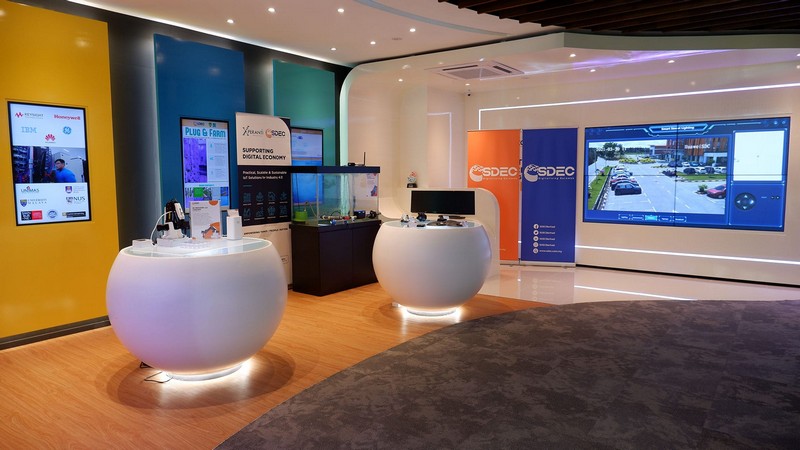
“The innovation clusters which are recognised around the world typically leveraged on the concentration effect of talent and market demand towards creating new products and services that translate ideas into commercial successes that is able to capture value,” said the Chief Minister.
In line with its socio-economic transformation to become a high-income state by 2030, Sarawak’s innovation efforts will leverage on its natural resources and focus on developing its R&D capabilities and commercialisation that align with bio-technology, digital applications and renewable energy.
According to the Chief Minister, the State continues to establish its innovation ecosystem through initiatives including the Bio-industrial Park, Digital Test-bed and Living Labs, Bio-Hub Port and Venture Capital Funds to attract more businesses from the private sector to invest in R&D in Sarawak.


